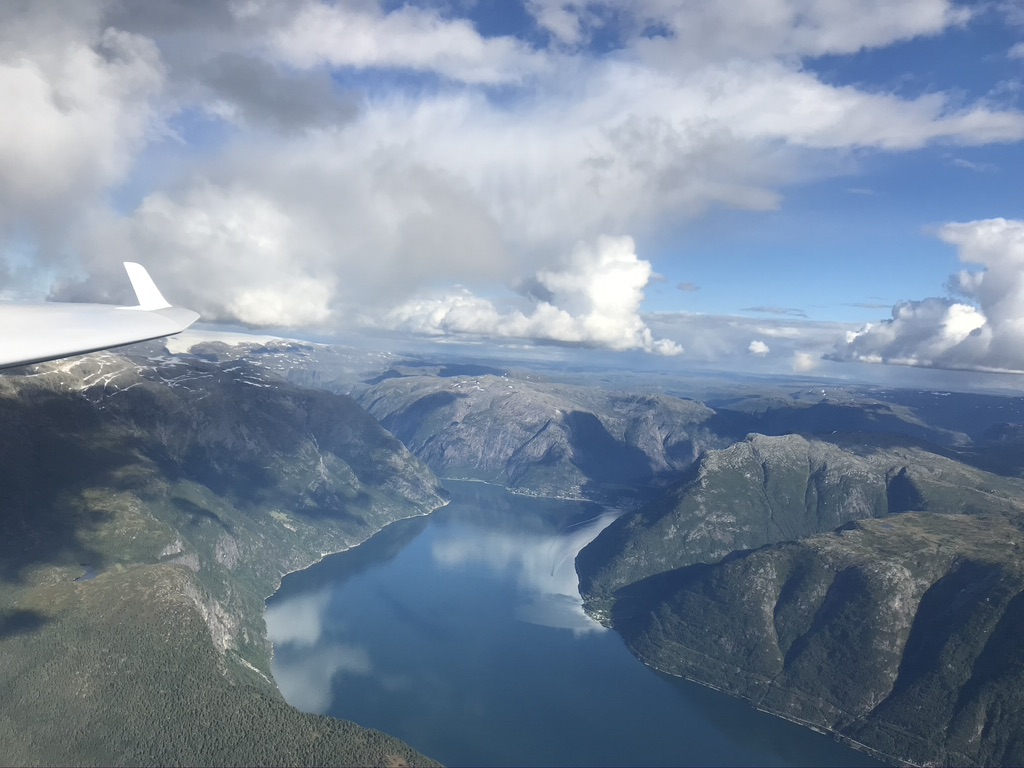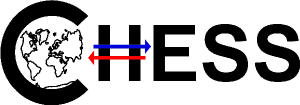When: 24-31 July 2022
Where: National Norwegian Gliding Centre, Elverum, Norway
Credit: 2 ECTS
Lecturers: Thomas Spengler (University of Bergen, Norway), Nikki Vercauteren (University of Oslo, Norway), Wim de Rooy (KNMI, Netherlands), Joachim Reuder (University of Bergen, Norway), Ivana Stiperski (University of Innsbruck), Marc Calaf (University of Utah), Vera Schemann (University of Cologne, Germany), Harald Sodemann (University of Bergen, Norway), and David Romps (University of California Berkeley, USA)
Target Group: PhD students with background and interest in land-atmosphere interaction processes and convection ranging from turbulent and mesoscales to parameterisations for global climate models. Focus will be on theoretical, observational, and modelling aspects.
Application deadline 26 April 2022.
Please feel free to contact us if you have specific inquiries: post@chess.uib.no

Course description:
The summer school will provide an overview of state-of-the-art theoretical paradigms, observation techniques, and modelling frameworks, as well as forecasting capabilities for land-atmosphere interaction processes and convection. Students will be introduced to observational strategies and on-site data collection as well as modelling, cutting edge diagnostics, and theoretical paradigms that are in active development. The summer school provides a unique opportunity bringing together young scientists studying different aspects of land-atmosphere interaction processes and convection. Through plenary lectures, poster presentations, and extended discussions, participants will be exposed to fundamentals and cutting edge research in the field as well as given the opportunity to build a community network for their future careers. In addition, the summer school will provide the opportunity for hands-on experience with state-of-the-art experimental equipment in the field as well as the possibility to experience convection first hand while flying through thermals with a glider.
Learning outcomes:
Participants will gain advanced knowledge on theoretical, observational, and modelling aspects regarding land-atmosphere interaction processes and convection. They will develop a synergistic view encompassing small and local scale to mesoscale and global perspectives. Lectures will be given by experts indicated as lecturers above. Participants will obtain:
- knowledge of state-of-the-art theoretical paradigms, diagnostics, and experimental strategies
- overview of modelling approaches and assessment of forecasting capabilities
- introduction to relevant observational techniques and interpretation of field data analysis
- insights into planning and conducting field campaigns
- foundation to develop their international research network
Learning modules:
The summer school will consist of a set of 3-4 lectures by each of the lecturers, 2 poster sessions with scientific presentations by PhD students, and analysis of observations obtained on site. In addition, there will be ample time for scientific discussions. Student activity: on site data acquisition and analysis of case studies.
The first day, we will feature an introduction to the on-site observational setup, venue, and finish the day with an icebreaker. During day 2 until day 7, there will be overview lectures ranging from processes at different scales relevant to the topic as well discussions of observations on site and from previous field campaigns. In the afternoon of day 2, 4, and 6, there will be poster presentations by the PhD students based on their own work with feedback and discussion time as well as time to present analysis of data obtained on site. On day 8, we will have a concluding discussion based on the obtained data and observed phenomena and formulate outstanding research questions and possible research strategies to tackle them.
Tentative schedule:
All meals (breakfast, lunch, dinner, as well as coffee breaks) will be catered at the venue of the summer school.
| Sunday 24 July | Afternoon | Introduction to the on site observational setup and venue |
| Evening | Icebreaker and dinner | |
| Monday 25 July | Morning | Lectures and discussions |
| Afternoon | Lectures and discussions | |
| Evening | Poster session with aperitif followed by dinner | |
| Tuesday 26 July | Morning | Lectures and discussions |
| Afternoon | Fieldwork experience and social time | |
| Evening | Dinner and time for data analysis | |
| Wednesday 27 July | Morning | Lectures and discussions |
| Afternoon | Lectures and discussions | |
| Evening | Poster session with aperitif followed by dinner | |
| Thursday 28 July | Morning | Lectures and discussions |
| Afternoon | Fieldwork experience and social time | |
| Evening | Dinner and time for data analysis | |
| Friday 29 July | Morning | Lectures and discussions |
| Afternoon | Lectures and discussions | |
| Evening | Preliminary discussion of observations followed by dinner | |
| Saturday 30 July | Morning | Lectures and discussions |
| Afternoon | Fieldwork experience and social time | |
| Evening | Dinner and summer school party | |
| Sunday 31 July | Morning | Concluding discussion and outstanding research questions |
| Noon | End of summer school |

Travel to Norway
Norway recently removed all COVID19 restrictions related to travel.
Official COVID19 regulations for entry to Norway
Accommodation, meals, and participation fee
Accommodation for participating PhD students and lecturers will be at the National Norwegian Gliding Centre, where we will share larger huts and rooms. All meals, from lunch Sunday 24 July until lunch Sunday 31 July, including breakfast, lunch, and dinner as well as coffee breaks, are included in the participation fee, which also covers accommodation at the National Norwegian Gliding Centre. The participation fee is 7000 NOK for those who are not a member of the Norwegian Research School CHESS. Participants who are not a member of CHESS need to cover their own travel to and from the National Norwegian Gliding Centre. We will try to arrange collective transport to/from Oslo Airport or the nearest train station for arrival and departure. See registration for further details about the summer school.
